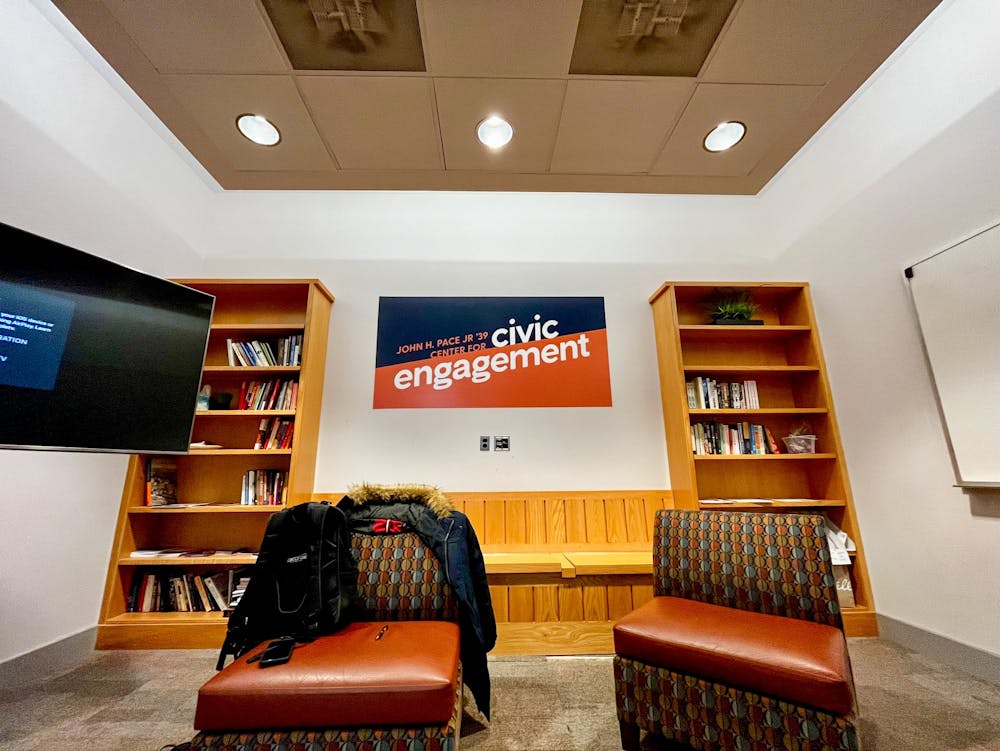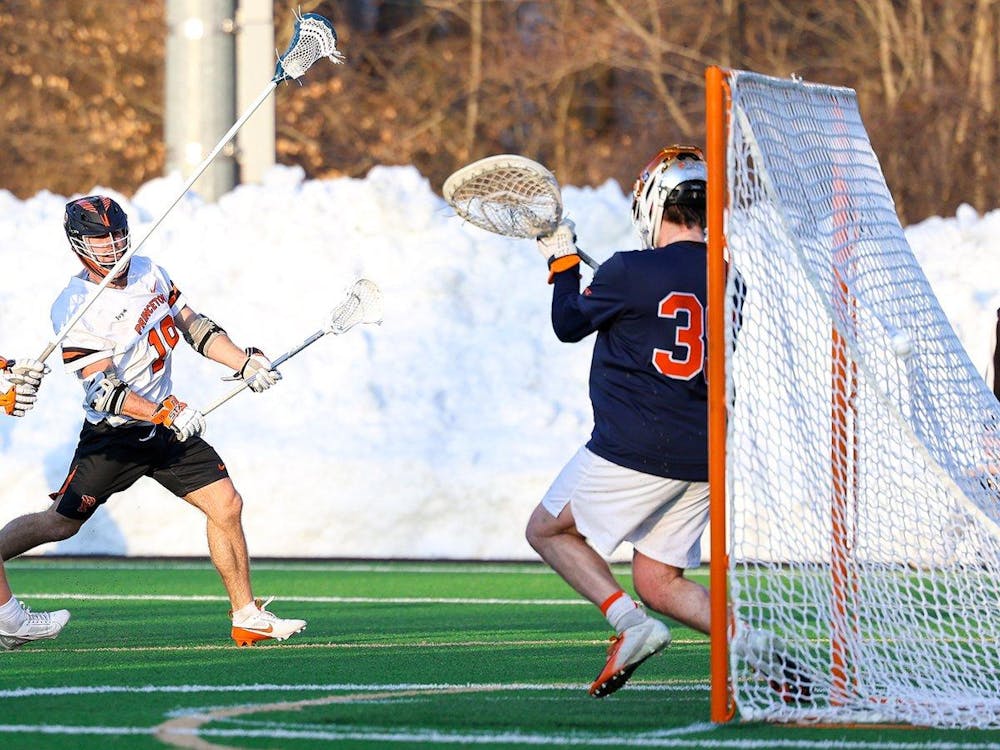“Princeton in the nation’s service and the service of humanity,” Princeton’s informal motto claims. In what ways does the University support students’ engagement with service? The Daily Princetonian looked into two programs, Program for Community-Engaged Scholarship (ProCES) and Learning and Education through Service (LENS), that are designed to expand students’ commitment to service in class and during the summer.
ProCES, a program designed to integrate service and learning through immersive classes, is nearing its 25th anniversary. It was joined this year as a service-based program by LENS, which has restyled existing resources and summer programs under a new structure.
A service element through ProCES classes
According to Tania Boster, the director of ProCES, ProCES classes are designed to “connect academic learning with Princeton’s commitment to service through collaborative, change-oriented projects of an intellectual nature that are of mutual benefit to students, faculty, and community partners.” ProCES course offerings for the coming fall semester include CBE 411: Antibiotics — From Cradle to Grave and HIS 388: Unrest and Renewal in Urban America.
Boster explained that students could engage in direct community service or visit community organizations to observe their work.
For their final project in the ProCES course, ANT 240: Medical Anthropology, Sarina Sheth ’26 and her group are working with Princeton Human Services. Sheth explains that they are creating “a list of mental health clinics and dental care providers that accept Medicaid,” which will be made available and distributed to residents of the town of Princeton.
Sheth is a contributing Sports writer for the ‘Prince.’
“We continue to bring our conversations back to the question of how best to be in the service of others, treat people with empathy, and work to preserve human rights and human dignity,” she added. “The midterm paper and final project similarly focus on human-centered approaches to ethnographic and service work.”

Adriana Alvarado ’25, who has taken three ProCES during her time at the University, described her experience in SPA 250: Identity in the Spanish-Speaking World, which included a class trip to Puerto Rico.
Alvarado said that during the trip, she had the opportunity to take a Bomba class, which provided her with a greater comprehension of Puerto Rico. “I gained a better understanding of how the island’s history of African slavery is remembered as a form of resistance and preserved in the spirit of the Puerto Rican community.”
Alvarado additionally emphasized that a key takeaway from the course was that it expanded how she understood and interpreted history.
“This course gave me the space to reflect and expand my understanding of learning about the past — it is not only rooted in the physical texts we can read or the artifacts we can touch; it transcends to the community bonds that are created through the memory of movement and sound,” she added.

Boster said that ProCES is currently in a transition period, as it explores how to approach community-engaged scholarship. As the program passes its 25th anniversary in the 2022–2023 academic year, the team behind ProCES is taking the time to reflect on important questions regarding service: “What can grassroots community organizers, non-profit organizations, and NGOs teach us about navigating the world’s complex problems in ways that do not reinforce and replicate systems of inequality? How can ProCES facilitate experiential learning opportunities that align with the learning goals of a class in ways that are respectful of community partners’ time and talent?”
These themes of respect and awareness are already prominent in the ProCES classes, according to students.
From Alvarado’s perspective, these courses offer a unique opportunity to “challenge [students] to be very intentional about the new spaces we enter and recognize that our learning experiences are not isolated and impact real people and communities outside the walls of our campus.”
A new service push through LENS
LENS, launched in October 2022, is another program that the University offers that focuses on service. Kimberly Betz, the executive director of the Center for Career Development, explained that LENS is an “overarching structure that can help a student locate the kind of opportunity that they want to have for the summer that’s a service or a social impact internship.” The LENS website lists various summer grants and internships that are related to service.
The programs included on their website existed prior to the creation of LENS. The difference, as Betz described, is that LENS provides assistance to students who are searching for summer service opportunities. Since the University offers so many opportunities through various programs and departments on campus, it may be difficult for students to find all these different internships.
Furthermore, the creation of LENS increased university funding and resources for pre-existing summer service programs. For example, Princeton Internships in Civic Service (PICS) were able to offer more internships this year than last year.
Betz told the ‘Prince’ that “every department is still running their programs the same way they did previously, but because of the LENS commitment, we have more opportunities to grow our programs.”
An example of a program that supports students’ ability to spend their summer dedicated to service is the Summer Social Impact Internship (SSII) Fund, which helps provide funding for students who are pursuing unpaid internships.
Makenna Marshall ’26 will be an intern at BakerRipley’s Immigration Service this summer with the support of SSII. Marshall said that SSII “will allow [her] to assist an immigration attorney in providing free legal immigration and citizenship services to low-income communities in the Houston area.”
Jonathan Rosenberg ’25, who participated in the SSII Fund last summer, worked at the National Union for Democracy in Iran. Rosenberg said SSII helped him engage in an opportunity he was genuinely interested in: “I was able to choose an internship that I liked, as opposed to one that was simply the highest paying.”
Another program offered by the university that supports service over the summer is Recognizing Inequities and Standing for Equality (RISE). The ‘Prince’ spoke with Mohan Setty-Charity ’24, who was a fellow at the Institute for Integrated Transitions in Barcelona through the RISE program. Besides the financial support that the program offered, RISE also helped Setty-Charity connect with the summer opportunity.
Setty-Charity said that with RISE, “the opportunity to find something tailored to my interests meant that I did not have to choose between a service oriented opportunity and something that would match with my academic and career goals.”
Setty-Charity is a senior columnist for the ‘Prince.’
While the first summer supported by LENS is still upcoming, students have appreciated the program thus far.
LENS continues to support and communicate with students throughout the summer as they are carrying out their internships. Nicole Young ’23 explained that she was included in a Canvas group with other students who were participating in internships funded by LENS during the summer.
Young also told the ‘Prince’ about how LENS helped her identify her goals for the summer: “I was able to converse through the different ideas I had of working in service with an advisor ... Together, my advisor and I formed a meticulous plan which guaranteed my mission.”
Betz stated that the program is a direct move on behalf of the University to reinforce its engagement with service. “From the University’s perspective, it’s a strong commitment to the University’s values around service … a commitment on the part of the University to say ‘we as Princeton, will support every undergraduate student who wants to do a service or social impact internship. We will support that with university funding.’”
Jeannie Kim is a News contributor for the ‘Prince.’
Please direct any corrections requests to corrections[at]dailyprincetonian.com.








